Séminaire Général du 23 avril 2024
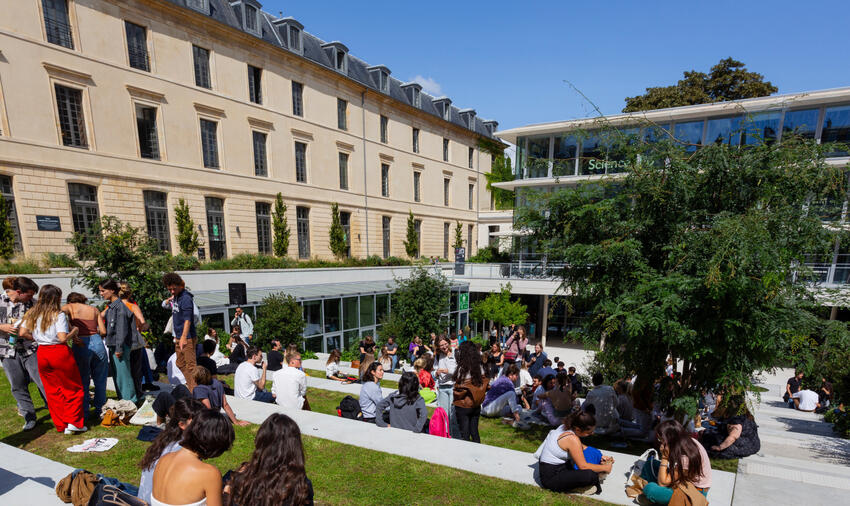
 Campus St Thomas
Campus St Thomas
Le prochain séminaire général AxPo/CEVIPOF se tiendra mardi 23 avril 2024.
Intervention : M. Sönke EHRET (University of Lausanne and World Economic Forum, Genev)
Thème : "Group Identities can Undermine Social Tipping after Intervention":
Discutant : M. Patrick LE BIHAN (CEVIPOF, Sciences Po)
When: Tuesday, April 23, 2024, 11:00-12:30 (Paris time)
Location: Room K.008, Sciences Po (1 Place Saint Thomas d'Aquin 75007 Paris).
Résumé
Social tipping can accelerate behavior change consistent with policy objectives in diverse domains from social justice to climate change. Hypothetically, however, group identities might undermine tipping in ways policy makers do not anticipate. To examine this, we implemented an experiment around the 2020 U.S.~elections. Participants faced consistent incentives to coordinate their choices. Once participants had established a coordination norm, an intervention created pressure to tip to a new norm. Our control treatment used neutral labels for choices. Our identity treatment used partisan political images. This simple payoff-irrelevant relabelling generated extreme differences. Control groups developed norms slowly before intervention but transitioned to new norms rapidly after intervention. Identity groups developed norms rapidly before intervention but persisted in a state of costly disagreement after intervention. Tipping was powerful but unreliable. It supported striking cultural changes when choice and identity were unlinked, but even a trivial link destroyed tipping entirely.
Le basculement social peut accélérer le changement de comportement en accord avec les objectifs politiques dans divers domaines, de la justice sociale au changement climatique. Cependant, les identités de groupe peuvent hypothéquer le basculement d'une manière que les décideurs politiques n'ont pas anticipée. Pour examiner cette question, nous avons mis en œuvre une expérience autour des élections américaines de 2020. Les participants ont été incités à coordonner leurs choix. Une fois que les participants ont établi une norme de coordination, une intervention les incite à basculer vers une nouvelle norme. Notre traitement de contrôle utilisait des étiquettes neutres pour les choix. Notre traitement sur l'identité utilisait des images politiques partisanes. Ce simple changement d'étiquette non pertinent du point de vue du gain a généré des différences extrêmes. Les groupes de contrôle ont développé des normes lentement avant l'intervention, mais sont passés rapidement à de nouvelles normes après l'intervention. Les groupes identitaires ont développé des normes rapidement avant l'intervention mais ont persisté dans un état de désaccord coûteux après l'intervention. Le basculement était puissant mais peu fiable. Il a favorisé des changements culturels frappants lorsque le choix et l'identité n'étaient pas liés, mais même un lien insignifiant a complètement détruit le basculement.
Etude "Les jeunes et la guerre"

 Actualité Sciences Po
Actualité Sciences Po
"Les jeunes croient-ils à la guerre et y sont-ils prêts ?"
Le CEVIPOF présente les résultats d’une étude inédite de Anne Muxel (spécialiste de la jeunesse et chercheuse émérite au CNRS ainsi que directrice déléguée du Cevipof) pour l'Institut de recherche stratégique de l'École militaire (IRSEM) et la direction générale des relations internationales et de la stratégie (DGRIS).
Publiée le 12 avril 2024, cette enquête explore en détail divers aspects de la relation des jeunes Français avec les forces armées, allant de leurs perceptions des guerres actuelles et futures à l'influence de leur famille, de l'éducation et des jeux vidéo, tout en interrogeant leur volonté d'engagement et de résilience en cas de conflit.
Consulter l'étude complète ici.
Quelques chiffres
Dans le cadre de la guerre en Ukraine, 1 jeune français sur 2 indique savoir précisément ce qu’il s’y passe.
73% d’entre eux redoutent que le conflit dépasse les frontières ukrainiennes.
Les moins de 35 ans sont davantagefavorables (31%) à un déploiement de troupes françaises que les plus de 50 ans (17%).
La guerre se classe à la 6ème position (18%) des sujets qui préoccupent le plus les jeunes français après le réchauffement climatique (39%) ou le pouvoir d’achat (28%) mais avant le chômage (13%) ou l’immigration (11%).
Le lien armée-nation demeure fort. Chaque année près de 90 000 jeunes se présentent aux tests de recrutement des armées (1/4 sont acceptés).
Les jeunes ont confiance envers l’institution militaire (82%).
L’antimilitarisme décline très largement chez les jeunes de gauche (43% d’entre eux soutiennent une augmentation des moyens des armées).
Prochain séminaire général

 Actualité Sciences Po
Actualité Sciences Po
Payer ou ne pas payer ? Céder, quitte à récompenser et renforcer un ennemi, ou rester ferme, quitte à laisser mourir l’un des siens ? Plébiscités par les organisations criminelles et terroristes, les enlèvements avec rançons imposent un dilemme radical aux États de droit. Au terme d'un travail de recherche de quatre années, Etienne Dignat analyse les différentes politiques des gouvernements en matière d'otages, pointe les impasses actuelles et propose une solution originale.
La courte bio : Etienne Dignat est docteur en science politique de Sciences Po Paris et chercheur associé au CERI. Ses recherches portent sur l'éthique de la guerre et la négociation avec les organisations terroristes. Il a récemment publié La rançon de la terreur. Gouverner le marché des otages aux Presses Universitaires de France.
Prochain séminaire général

 Actualité Sciences Po
Actualité Sciences Po
Il sera l'occasion d'écouter M. Bernard REBER, philosophe moral et politique, Directeur de recherche au CNRS, Chercheur au CEVIPOF, sur : "Délibération responsable entre conversation et considération. Conditions d'un grand débat démocratique"
La présentation de l’ouvrage est disponible en français, english version
Certaines thèses sont brièvement reprises et reconfigurées pour un TEDx d’AgroParisTech à partir d’une autre question : Délibérer avec des moi(s) multiples.
Discutant : M. André BÄCHTIGER
He is Professor of Political Theory and Empirical Democracy Research at the University of Stuttgart. His research focuses on democratic preferences and the challenges of mapping and measuring deliberation and political communication. His ongoing ERC Advanced Grant Designing Democracy on Mars and Earth (DDME) focuses on how to design future democracy by taking a citizen-centered perspective. His research has been published by Oxford University Press and Cambridge University Press as well has appeared in journals such as Science, American Political Science Review, British Journal of Political Science, European Journal of Political Research and the Journal of Political Philosophy - https://www.sowi.uni-stuttgart.de/abteilungen/pt/team/
Présentiel : salle K.008 au 1ST - Bâtiment M
Distanciel : Lien zoom : https://sciencespo.zoom.us/j/4358725680?omn=92759033276
Graduate Conference in Political Theory

 Actualité Sciences Po
Actualité Sciences Po
The Ph.D students of Sciences Po are pleased to annouce the 10th Graduate Conference in Political Theory.
The title this year is the Metamorphosis of the Self: Technology, identity, and power in late modernity.
The special guest will be Shoshana Zuboff, well known for her research about surveillance capitalism, who will deliver an opening and original lecture.
Further information are available below. The conferences will take place in Paris from May 22 to May 23 in 2024. All Ph.D students that want to connect their research with political theory, the self, and technologies, are invited to submit proposals. Communications can be in French or in English.
Prochain séminaire général
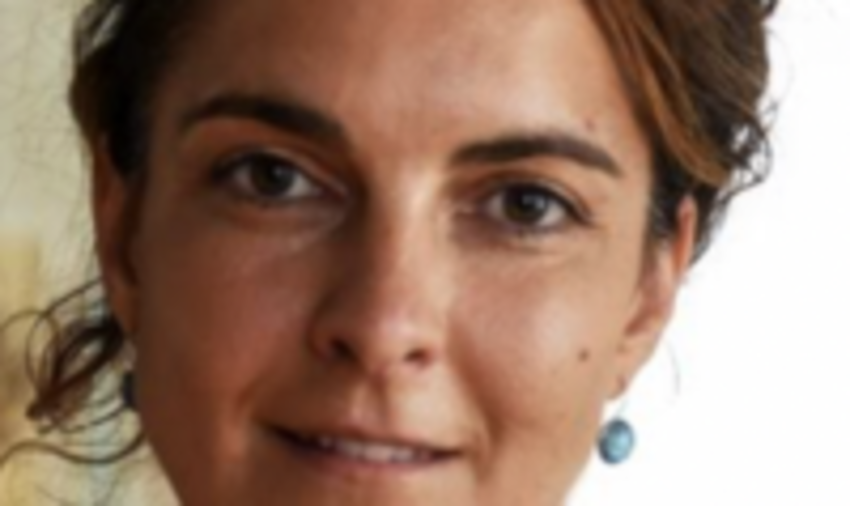
 Actualité Sciences Po
Actualité Sciences Po
Camille Mazé, chargée de recherche, Gouverner la mer face au changement global
L’océan, dans ses interfaces avec la terre et l’air, a un rôle fonctionnel, socio-économique et symbolique fort à jouer dans les conditions de l’habitabilité planétaire et le maintien du vivant sur la planète « bleue ». Il est au cœur des grands défis à relever face au changement global, constitue un modèle d’étude et d’action pertinent pour mettre à l’épreuve de l’empirique le concept de transformation vers la soutenabilité, notamment à travers le concept de gouvernance des socio-écosystèmes. Cette catégorie, théorique et normative, connaît aujourd’hui un succès florissant dans la littérature en sciences de l’environnement, études de résilience et sciences de la soutenabilité, mais elle peine à trouver assez vite et à suffisamment grande échelle des applications au local. Pour passer du normatif et de l’injonctif à l’opérationnel, il convient de mobiliser les sciences sociales du politique, en étroite interaction avec les sciences de la nature et sciences dites exactes, pour interroger et mettre à l’épreuve du terrain le paradigme de gouvernance des socio-écosystèmes, le principe de solidarité écologique et la gestion adaptative pensées comme des trajectoires « politiques » pertinentes et efficaces mais souvent déconnectés des politiques territoriales. Mes travaux décryptent ainsi les conditions de possibilité et d’impossibilité de mise en œuvre de cette nouvelle forme d’intervention publique, à partir du cas des socio-écosystèmes ultra-marins français, étudiés à la fois sous l’angle écologique, socio-politique et géopolitique. A cet égard, des enquêtes sont réalisées sur les décisions publiques, les mobilisations collectives, les régimes de gestion environnementale et la production et la circulation des savoirs, des laboratoires scientifiques, aux communautés de savoirs locaux jusqu’aux arènes de décision impliqués dans la gestion des écosystèmes et des ressources naturelles, la prévention des risques, le traitement des crises.
Merci de vous inscrire auprès de info.cevipof@sciencespo.fr
Prochain séminaire général
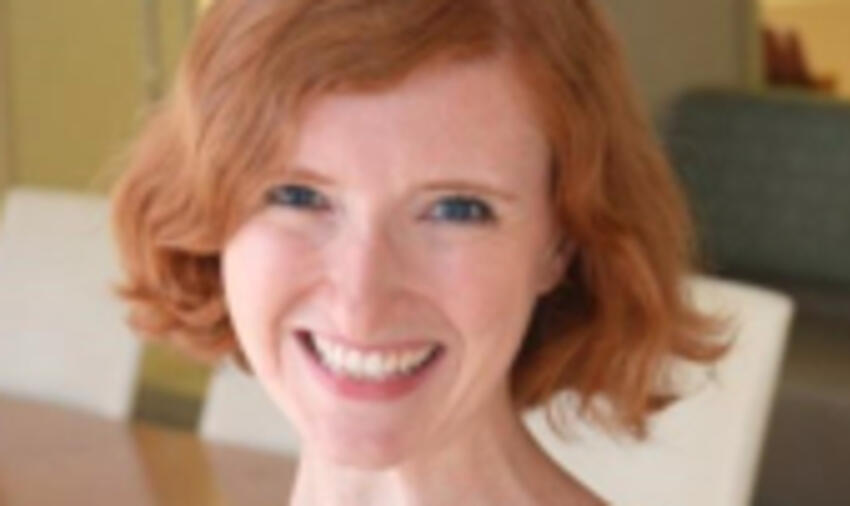
 Mme Lauren E.YOUNG, Associate Professor of Political Science, UC Davis
Mme Lauren E.YOUNG, Associate Professor of Political Science, UC Davis
Title: “The limits of deliberation: Experimental evidence on punitive justice attitudes in Mexico”
Abstract: Does deliberation decrease support for punitive responses to crime in a high-violence, high-impunity context? We test the behavioral theories that support for harsh punishments such as lynchings or long prison sentences are driven by either 1) fast, emotional thinking, or 2) inaccurate beliefs, especially about descriptive norms. We ran a field experiment in Michoacán, Mexico, to evaluate whether citizen deliberation sessions changes citizen preferences for how to respond to crime. We test two versions of the deliberation: 1) a standard deliberation focused on sharing information and carefully weighing costs and benefits; 2) and a deliberation where participants were also encouraged to consider and regulate their emotions. Neither deliberation reduced support for punitive crime responses, and the emotion-enhanced deliberation may have increased support for harsh punishments. Our findings suggest that in high-violence, high-impunity contexts, support for harsh punishments is not driven by misperceptions of descriptive norms or unwanted emotional reactions. In sum, deliberation does not moderate criminal justice attitudes in a context where participants do not see alternatives to harsh punishments and find negative emotional reactions to crime to be useful.
Merci de s'inscrire auprès de info.cevipof@sciencespo.fr
Prochain séminaire général
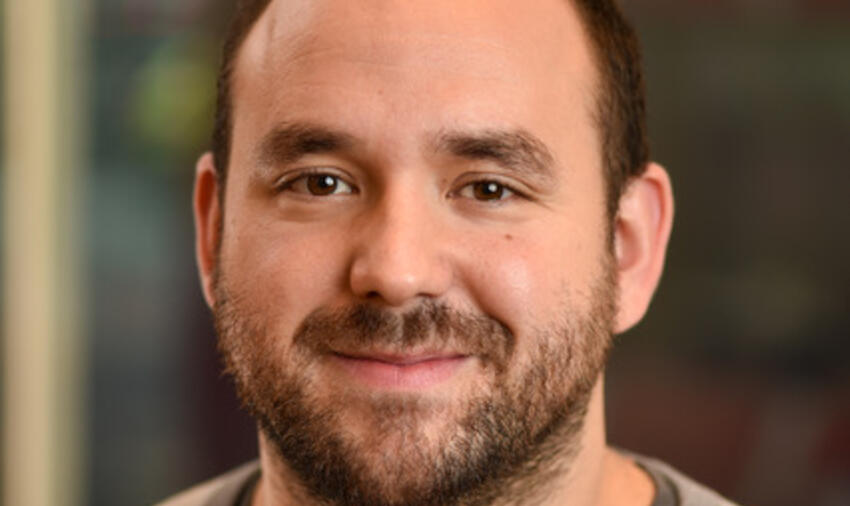
 Actualité Sciences Po
Actualité Sciences Po
Damien BOL, Assistant Professor of Political Behavior, The Effect of Being a Poll Worker on Democratic Attitudes in a Post-Conflict Society: Evidence from an Experiment in Colombia (Intervention en anglais)
Abstract: In an era marked by democratic backsliding, maintaining high levels of support for democracy among the population is crucial. A promising policy to achieve this goal is the direct involvement of citizens in the electoral process as poll workers. It is expected that their confidence in and support for elections and democratic procedures will increase through hands-on experience in the electoral process. In this paper, we test this hypothesis by leveraging a pre-registered, large-scale experiment conducted in collaboration with the Colombian government during the 2023 regional elections. As a democratic yet post-conflict society, Colombia represents a critical case study in this context. In this experiment, educated adults were randomly selected to serve as poll workers. Our findings, derived from a post-election survey with approximately 30,000 respondents—where poll workers were overrepresented to ensure statistical robustness—indicate that being selected as a poll worker and undergoing the relevant training causally enhances confidence in electoral procedures, but less so in municipalities heavily affected by political violence during the civil conflict between the government and guerrilla forces. Furthermore, our results also indicate the existence of a backlash effect of poll working that decrease trust in the way votes are counted. This paper thus offers cautious support for the use of poll working as a strategy to counteract democratic backsliding.
Discutante : Lou Safra (sous réserve)
Merci de s'inscrire auprès de info.cevipof@sciencespo.fr
SCIENCES PO/ CEVIPOF IS RECRUITING

 Actualité Sciences Po
Actualité Sciences Po
Sciences Po/ CEVIPOF IS RECRUITING

 Actualité Sciences Po
Actualité Sciences Po
Soutien du CEVIPOF au concours CNRS 2023
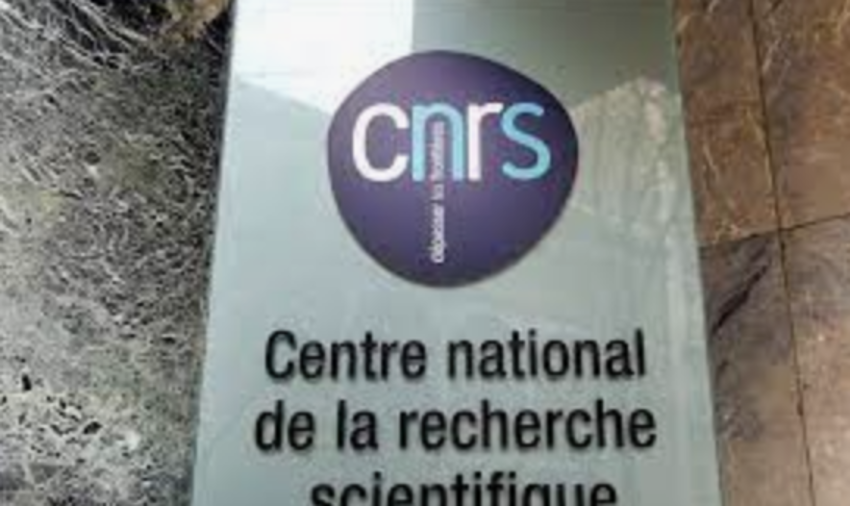
 CNRS _ afp.com/Lionel Bonaventure
CNRS _ afp.com/Lionel Bonaventure
Les candidat.e.s au concours CNRS 2023 (sections 36 et 40) qui souhaiteraient bénéficier du soutien du Centre de recherches politiques de Sciences Po (CEVIPOF - UMR 7048), peuvent transmettre leur demande à Martial Foucault, directeur du CEVIPOF à l'adresse suivante : martial.foucault@sciencespo.fr, copie à Gessica Jean gessica.jean@sciencespo.fr
La demande sera constituée d'un CV détaillé, d'une lettre de motivation, du rapport de thèse (si disponible) et d'un projet de recherche (ou avant-projet).
Ce dossier devra être remis le mercredi 6 décembre 2023 au plus tard pour examen en conseil de gestion de laboratoire. Les candidat.e.s soutenu.e.s par le CEVIPOF pourront bénéficier d'une préparation (finalisation du projet et audition blanche).
Le CEVIPOF est un centre de recherche pluridisciplinaire en science politique qui rassemble 25 chercheur.e.s permanent.e.s, 30 chercheur.e.s associé.e.s et 32 doctorant.e.s.
Les approches méthodologiques sont plurielles et concernent autant la France que d'autres pays, notamment dans une approche comparative.
Le laboratoire se structure autour de 3 pôles :
- Pôle "Attitudes et comportements politiques
- " Pôle "Réponses et dynamiques institutionnelles" Pôle
- "Théorie politique"
ainsi que 3 axes transversaux :
- Axe "Émotions - Affects - Démocratie"
- Axe "Confiances"
- Axe "Enjeux méthodologiques"
Pour plus d'information sur les domaines d'activité et les champs de recherche du Centre : https://www.sciencespo.fr/cevipof/fr.html
The 2023 Val de Marne 3rd prize for research
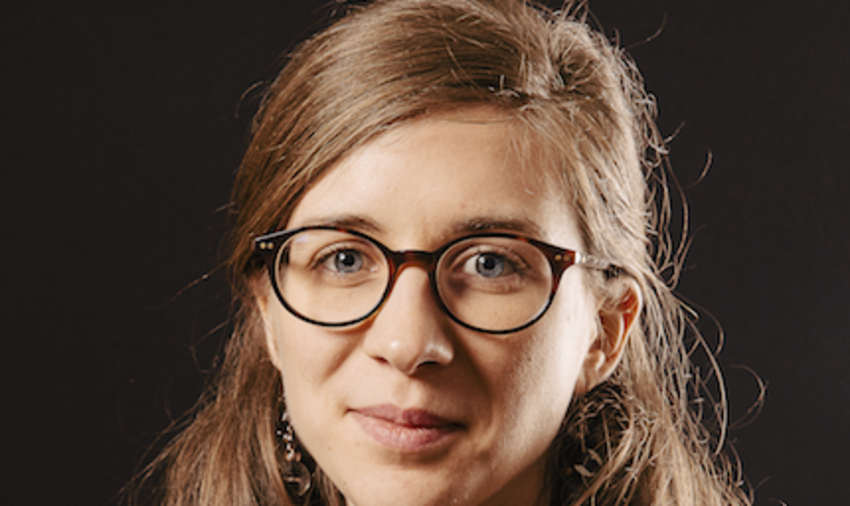
 Actualité Sciences Po
Actualité Sciences Po
Discussion/Debate following publication of "Citizenship: The Third Revolution"
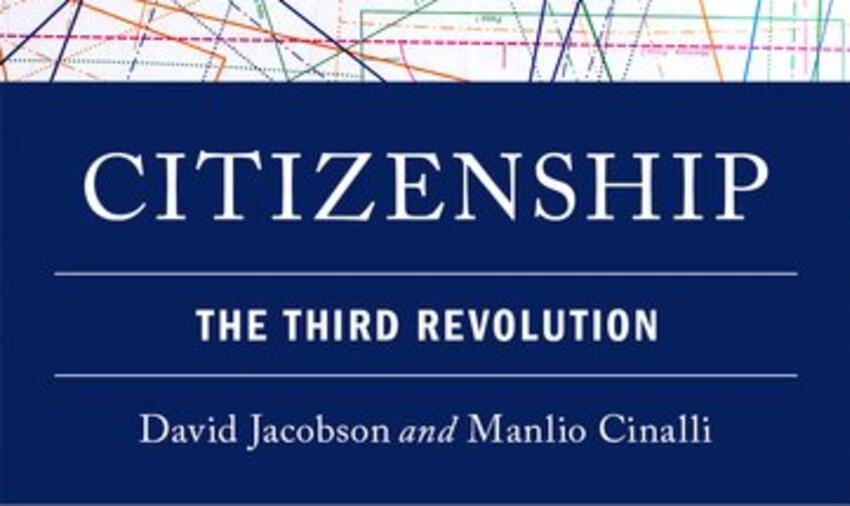
 Couv. de l'ouvrage
Couv. de l'ouvrage
S'inscrire ici pour obtenir le lien Zoom
L'Atelier de Theorie politique Paris
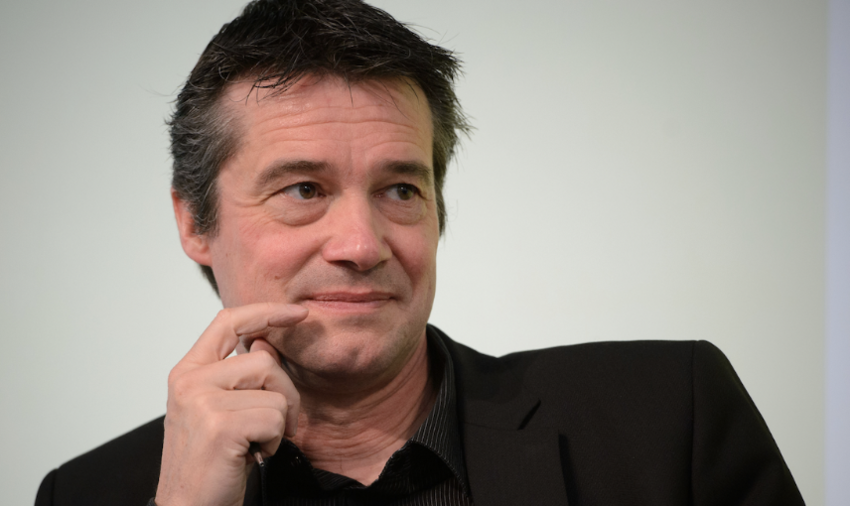
 Rainer Forst Foto: www.stephan-roehl.de
Rainer Forst Foto: www.stephan-roehl.de
This is the inaugural session of a monthly inter-university seminar coordinated by Patrick Savidan (Université Panthéon Assas), Luc Foisneau (EHESS), Julian Culp (American University in Paris) and Annabelle Lever (CEVIPOF).
Professor Rainer Forst (Goethe University, Frankfurt) will speak in English on the theme of "Trust"
Focus on Hans Joas

 Couv. ouvrage + portrait hans Joas
Couv. ouvrage + portrait hans Joas
This is a one-day conference that focuses on Hans Joas as his latest book Comment naissent les valeurs is published Calmann-Lévy, 2023.
Comité scientifique : Gilles Achache (Calmann-Lévy), Alexandre Escudier (Sciences Po/CEVIPOF), Pierre Gisel (Université de Lausanne) et Jean-Marc Tétaz (Université d'Iéna)
Colloquium: "André Malraux et la politique"

 André Malraux, collection privée de Florence Malraux
André Malraux, collection privée de Florence Malraux
Colloque co-organisé par Janine Mossuz-Lavau (CEVIPOF), les AIAM (Amitiés internationales André Malraux), les Archives diplomatiques (le ministère de l’Europe et des Affaires étrangères), le ministère de la Culture, l’INA et la Fondation des Alliances françaises.
IAST-OxPo Conference on Political Science and Political Economy
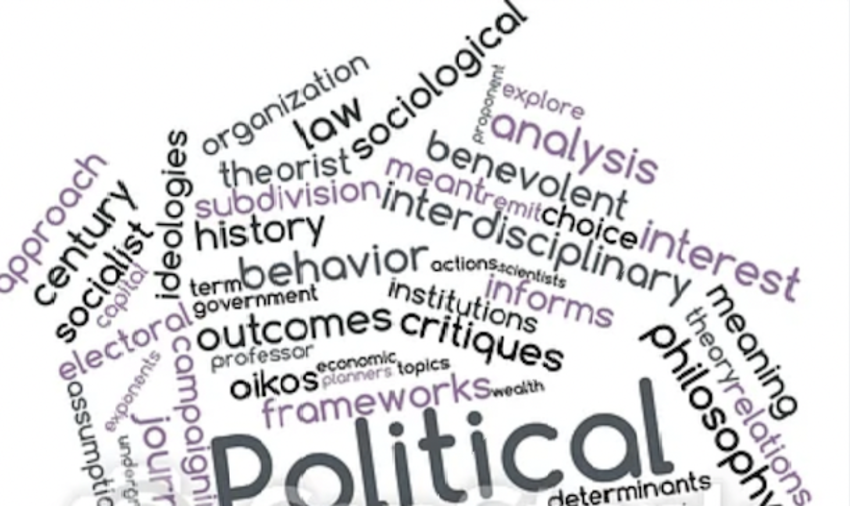
 Science politique, économie crédit @Canstock
Science politique, économie crédit @Canstock
Séminaire GEVIPAR
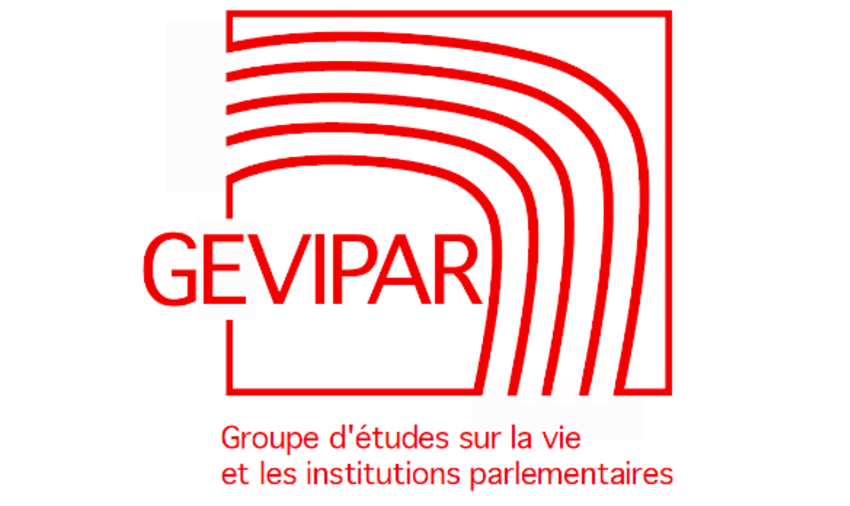
 Actualité Sciences Po
Actualité Sciences Po
Séminaire GEVIPAR
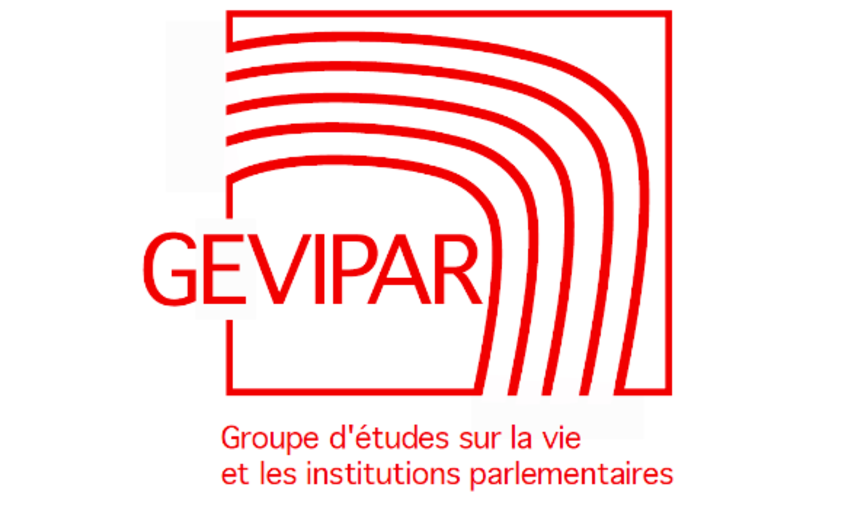
 Actualité Sciences Po
Actualité Sciences Po
séminaire croisé « la Décentralisation en question(s)"

 Actualité Sciences Po
Actualité Sciences Po
Call For Papers

 Jacques Villeglé, Carrefour-Algérie-Evian, 1961
Jacques Villeglé, Carrefour-Algérie-Evian, 1961
Call for paper Workshop, Friday, December 15, 2023 Sciences Po - Cevipof - CSO Working
Languages: English and French
Deadline : June 01-2023
Organization : ▪ Sarah Gensburger, CNRS-Centre de Sociologie des Organisations (Sciences Po) : sarah.gensburger@sciencespo.fr ▪ Paul Max Morin, Cevipof (Sciences Po) - Université Nice Côte - d’Azur : paul.morin@sciencespo.fr
Background:
The French colonization of Algeria (1830-1962), the Algerian War of Independence (1954-1962), and the exiles and migrations they engendered, have profoundly influenced the formation of contemporary France. Republican institutions, political families, French capitalism, the country's demographics, culture and even language were partly forged in these historical experiences. The year 2022 marked the sixtieth anniversary of the end of the Algerian War of Independence and the colonization of Algeria. Parts of French society participated in the commemoration of the end of the conflict. In doing so, these actors produced a certain number of speeches, gestures, or public policies about the past. This time of memory was coupled with a political time that included this anniversary in an election year and ensured a strong presence of colonization and the Algerian War in the media...Read more (Pdf, 361Ko)
Sciences Po is recruiting

 Recruitement
Recruitement
Position: Assistant Professor
Discipline: Political behavior / Institutions / Trust
Expectations: This job position is designed to reinforce one of the three main research themes at the CEVIPOF, i.e. political behavior (elections, voting, electoral campaign, democratic institutions, political parties, trust), democratic institutions and political theory. The successful candidate will be affiliated to the CEVIPOF and to Sciences Po Department of Political science... See more (PDF,148Ko)
Coming soon
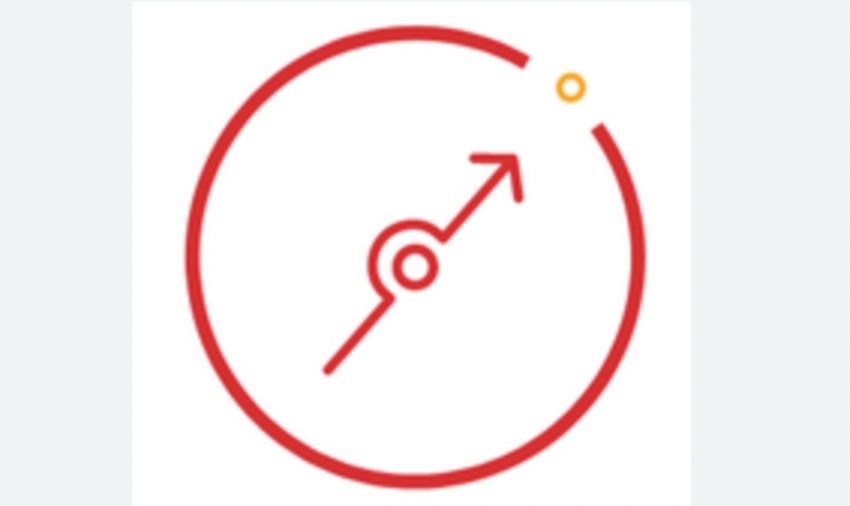
 Logo of the Political Trust Barometer
Logo of the Political Trust Barometer
De la part de toute l'équipe du CEVIPOF

 Actualité Sciences Po
Actualité Sciences Po
Equality And Electoral Democracy
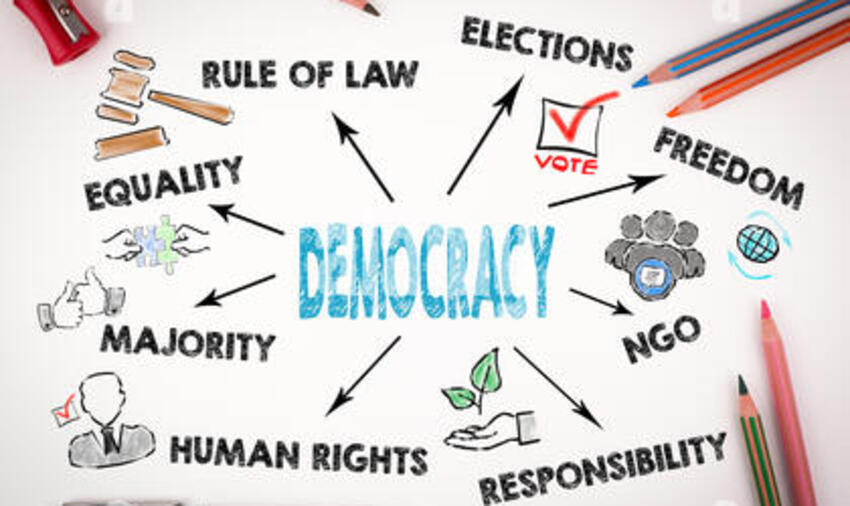
 Democracy concept - Image ID:RYJ02F @alamy
Democracy concept - Image ID:RYJ02F @alamy
Ecosystems as Infrastructures?
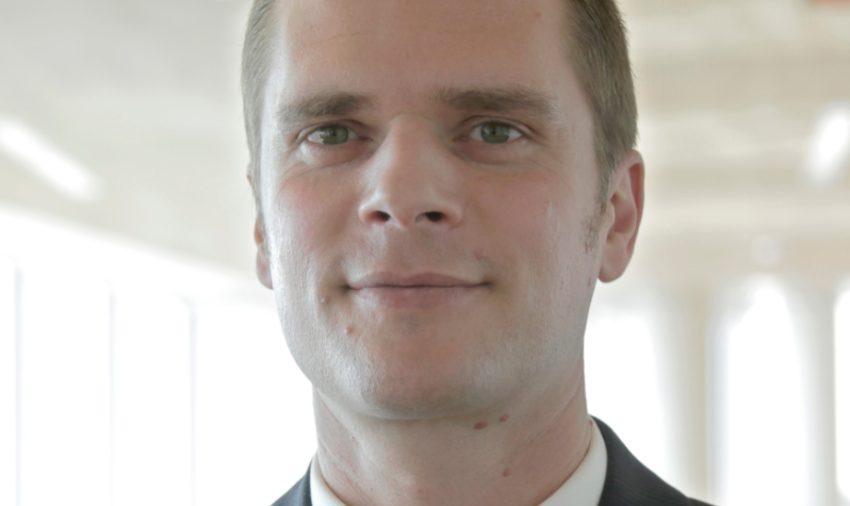
 Rodolphe Barrangou
Rodolphe Barrangou
The challenges raised by large-scale genome engineering in the nuclease age.
Conference by Prof. Rodolphe Barrangou on new genome editing technologies followed by a Q&A session on the transformations of ecosystems and their potential integration as the infrastructures of the future. About the event Genome engineering have yielded important technological advances which have been successfully scaled up. The artificial synthesis of insulin is often quoted as a major progress. The covid-19 pandemic has highlighted how recent techniques, such as faster DNA sequencing and mRNA vaccines, can be deployed continent-wide. As such, they have arguably passed an infrastructural threshold: herd immunity, while it has limitations, is functionally the result of a network of agents deciding that their immune systems collectively benefit from maintaining themselves as part the structure they belong to. Genome engineering techniques such as CRISPR open new perspectives in this domain. The advent of programmable nucleases raises the question of changing ecosystems on a molecular level to serve social welfare...Read more (Pdf, 205 Ko)
Moderation by Guillaume Levrier
Up coming general Seminar
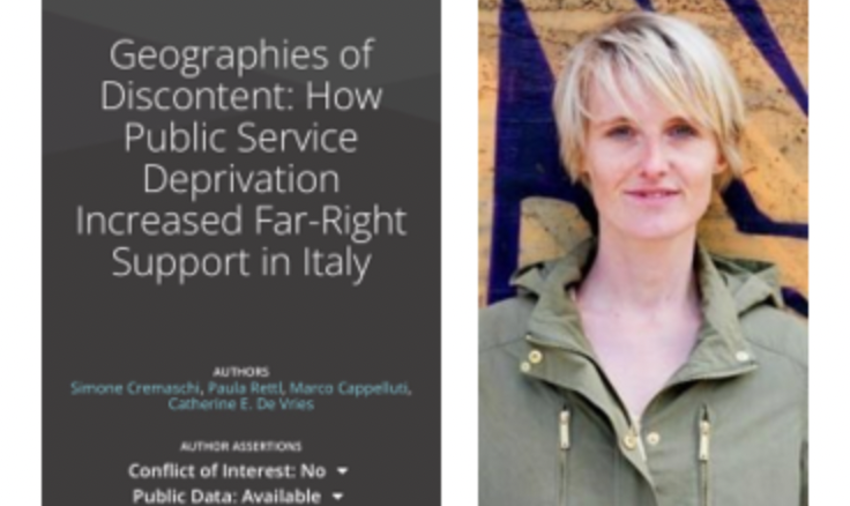
 Catherine de Vries et couv. de l'ouvrage
Catherine de Vries et couv. de l'ouvrage
Catherine de Vries, Université Bocconi, interviendra sur Geographies of Discontent: How Public Service Deprivation Increased Far-Right Support in Italy.
Electoral support for far-right parties is often linked to specific geographies of discontent. We argue that public service deprivation, defined as reduced access to public services at the local level, helps explain these patterns in far-right support. Public service deprivation increases the appeal of far-right parties by making people more worried about immigration and increased competition for public services. We examine our argument using three studies from Italy, home to some of the most electorally successful far-right parties in recent decades. We examine cross-sectional data from municipalities (study 1), exploit a national reform forcing municipalities below a certain population threshold to jointly share local public services (study 2), and explore geo-coded individual-level election survey data (study 3). Our findings suggest that public service deprivation helps us better understand geographic differences in far-right support and the mechanisms underlying them.
S'inscrire auprès de info.cevipof@sciencespo.fr
Satire and Democracy - Hybrid Conference

 satire & démocratie
satire & démocratie
upcoming general seminar
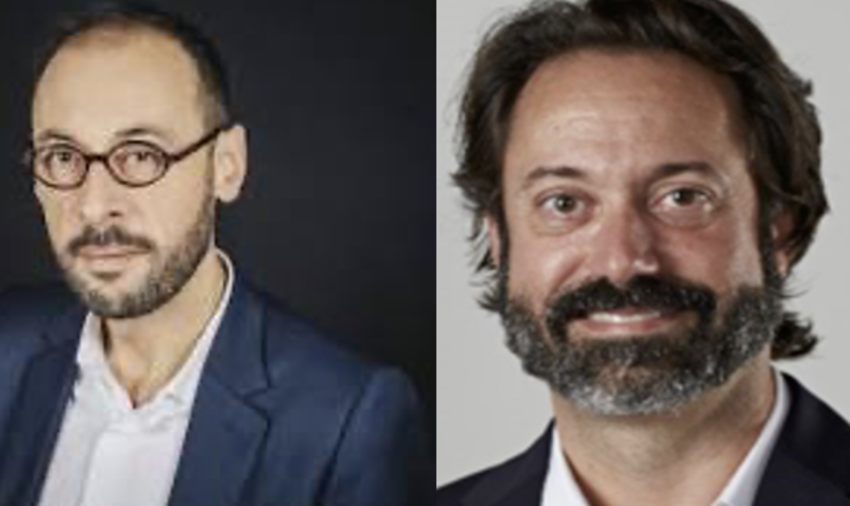
 Actualité Sciences Po
Actualité Sciences Po
Martial Foucault etn Kevin Arceneaux intervIendront sur Incentivizing Good Digital Governance: Toward a Healthier and More Ethical Online Public Sphere.
Résumé :
In this project we propose developing and administering an innovative research design for both understanding how people engage with the online public sphere as well as test interventions that are designed to cultivate healthier and more constructive online behaviors. We plan to do so in the context of the French presidential and legislative elections slated for spring 2022. Following the experience of the last national elections in France, we anticipate that the electoral campaign will be emotionally charged, polarizing, and filled with attempts to spread misinformation. Our research approach will cast a broad net by studying a wide range of attitudes and behavior, both on- and offline.
Interventions en anglais
Pour obtenir le lien zoom, s'inscrire auprès de info.cevipof@sciencespo.fr
Prochain séminaire général
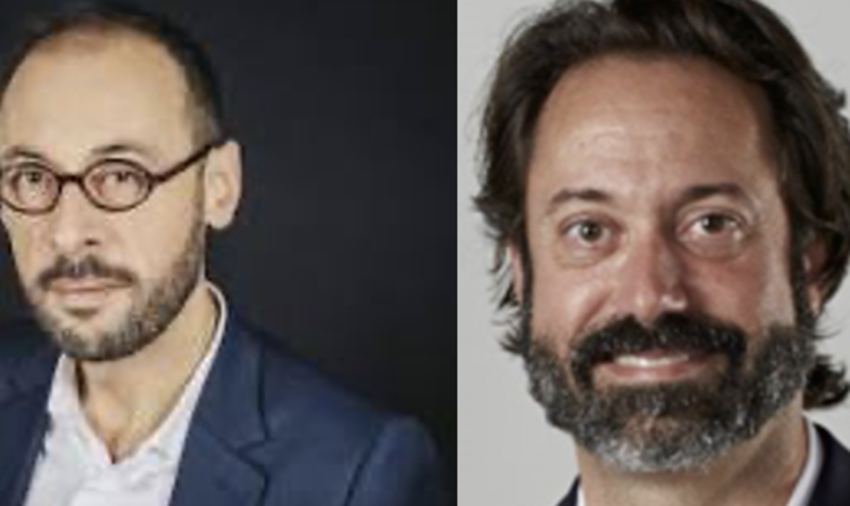
 Foucault & Arceneaux
Foucault & Arceneaux
Martial Foucault etn Kevin Arceneaux intervIendront sur Incentivizing Good Digital Governance: Toward a Healthier and More Ethical Online Public Sphere.
Résumé :
In this project we propose developing and administering an innovative research design for both understanding how people engage with the online public sphere as well as test interventions that are designed to cultivate healthier and more constructive online behaviors. We plan to do so in the context of the French presidential and legislative elections slated for spring 2022. Following the experience of the last national elections in France, we anticipate that the electoral campaign will be emotionally charged, polarizing, and filled with attempts to spread misinformation. Our research approach will cast a broad net by studying a wide range of attitudes and behavior, both on- and offline.
Interventions en anglais
Pour obtenir le lien zoom, s'inscrire auprès de info.cevipof@sciencespo.fr
L'universalisme en débat(s)
Colloque organisé par Stéphane Dufoix (Paris-Nanterre et IUF) et Alain Policar (Sciences Po, CEVIPOF)
Dans les disputes contemporaines autour des mots qui fâchent, la querelle de l’universalisme occupe une place décisive. En effet, chacun revendique, à travers tribunes et officines, séminaires et colloques, le bon usage du terme, et renvoie l’adversaire à ses présupposés. Faudrait-il, parce qu’il a été dévoyé, renoncer à l’universalisme ? Ou, au moins, le relativiser, c’est-à-dire accorder moins d’importance à ce qui transcende nos singularités ? Car, il faut le reconnaître, les promesses non tenues de l’universalisme sont à l’origine de la crise que celui- traverse. Et le dossier de l’accusation est lourd : le recours incantatoire aux valeurs universelles s’est accommodé de la persistance des discriminations, qu’elles existent entre pays riches et pays pauvres ou, à l’intérieur de ces pays, entre populations favorisées et populations marginalisées. La pente assimilationniste du modèle républicain à la française, au-delà de son catéchisme d’indifférence à la différence, a accompagné, chemin faisant, le dévoiement de la valeur d’égalité jusqu’à l’infériorisation de l’Autre. Mais ne serait-ce pas, en réduisant l’universalisme à ses mésusages, jeter le bébé avec l’eau du bain ? Faut- il pour autant conserver la notion d’universalisme ? Ou lui préférer, par exemple, celle de pluriversalisme ? Le colloque se propose d’interroger les conditions, les modalités et les enjeux du renouvellement de l’universalisme afin qu’il puisse redevenir un horizon émancipateur.
Télécharger le programme (pdf,2,65Mo)
Lien zoom : https://sciencespo.zoom.us/j/4358725680
2022's Doris A. Graber Outstanding Book Award
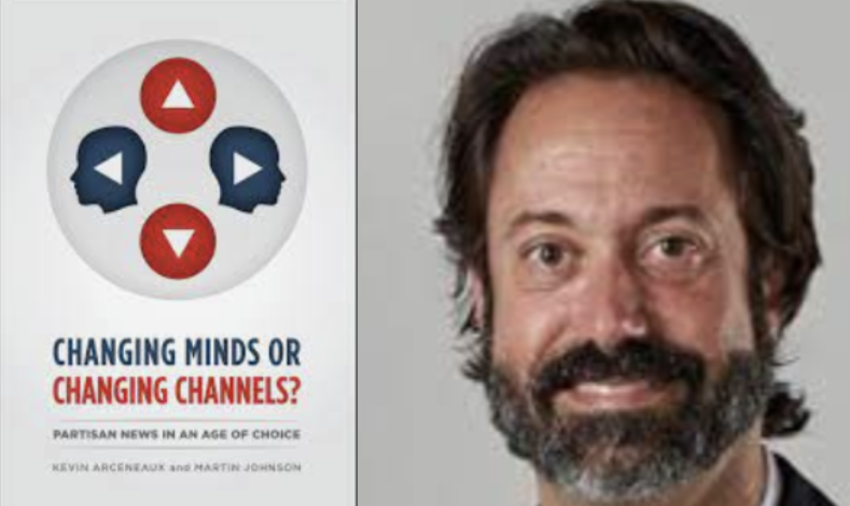
 Actualité Sciences Po
Actualité Sciences Po
Changing Minds or Changing Channels? Partisan News in an Age of Choice, University of Chicago Press. 2013,wrotte by Kevin Arceneaux & Martin Johnson, is the 2016 winner of the Doris Graber Book Award for the Political Communication Section of the American Political Science Association.
The Doris Graber Book Award is an annual prize given to the best book published on political communication in the last ten years
Implementing Citizenship, Nationality and Integration Policies
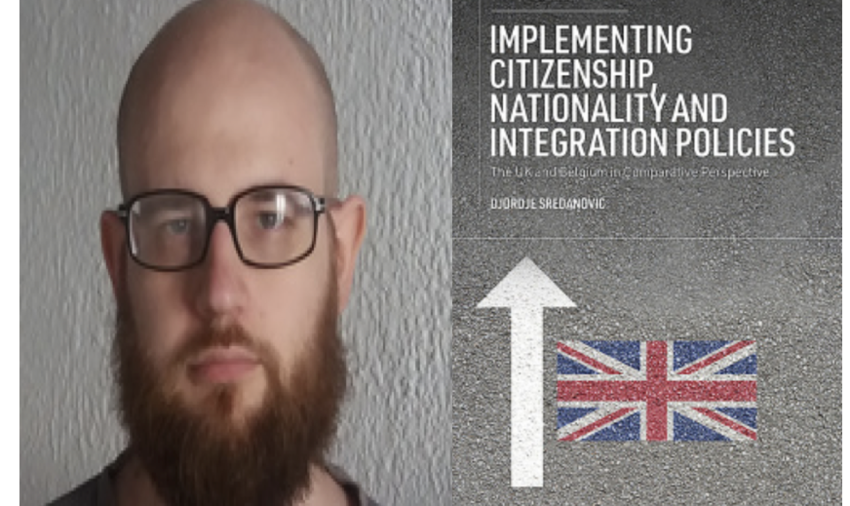
 Djordje + ouvrage
Djordje + ouvrage
Djorje Sredanovic présentera son ouvrage
implementing Citizenship, Nationality and Integration Policies. The UK and Belgium in Comparative Perspective, Bristol University Press.
Discutant : Émilien Fargues
S'inscrire auprès de info.cevipof@sciencespo.fr
Strengthening Electoral Participation

 Voter-Queue
Voter-Queue
How Emmanuel Macron Changed France
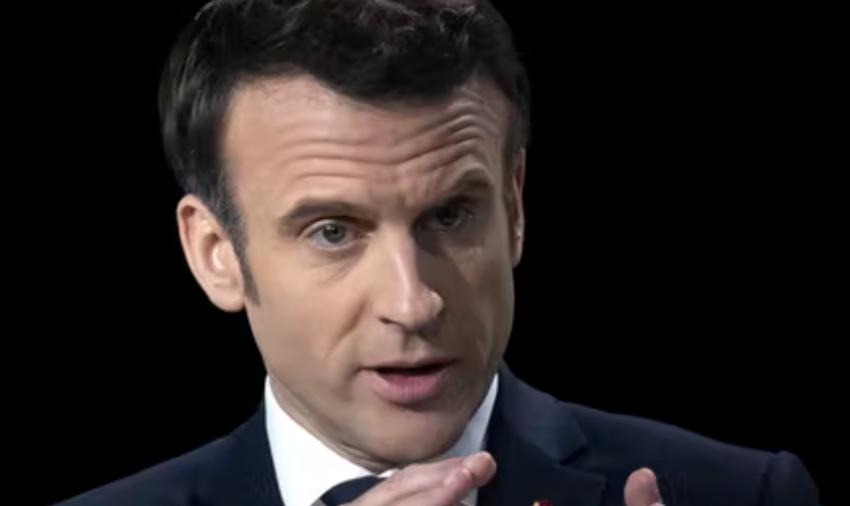
 Emmanuel Macron crédit Ian Langsdon/EPA
Emmanuel Macron crédit Ian Langsdon/EPA
COGITO #17

 Cogito Research Magazine
Cogito Research Magazine
War anxiety makes French voters rally round Macron. For how long?
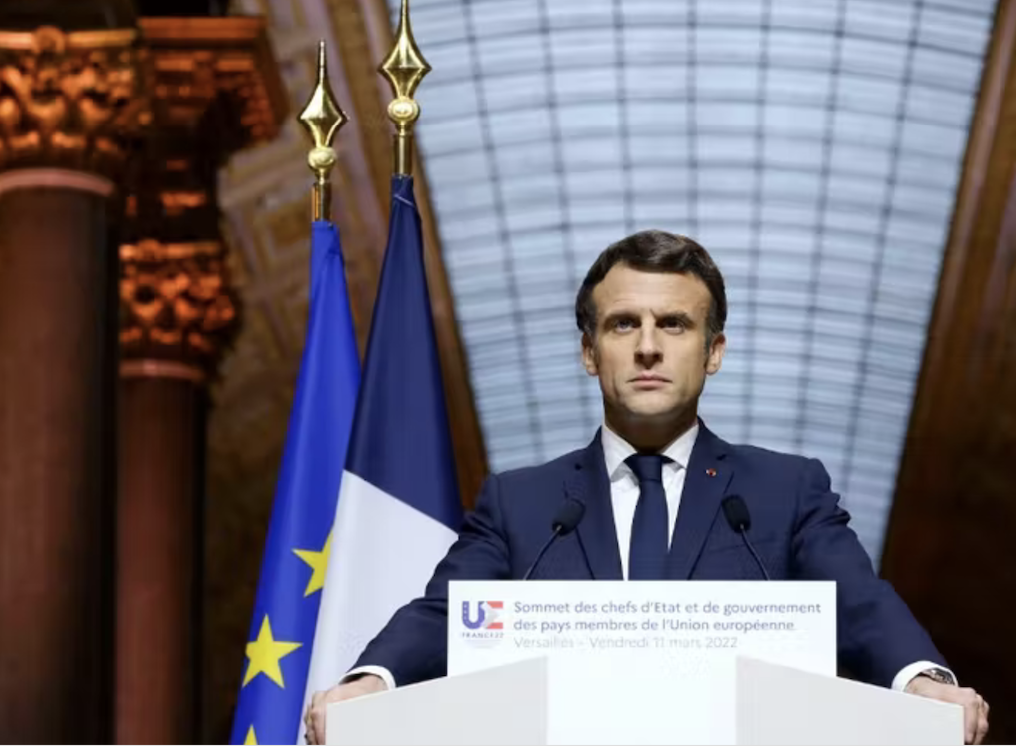
 France’s President Emmanuel Macron holds a press conference
France’s President Emmanuel Macron holds a press conference
Prochain séminaire général
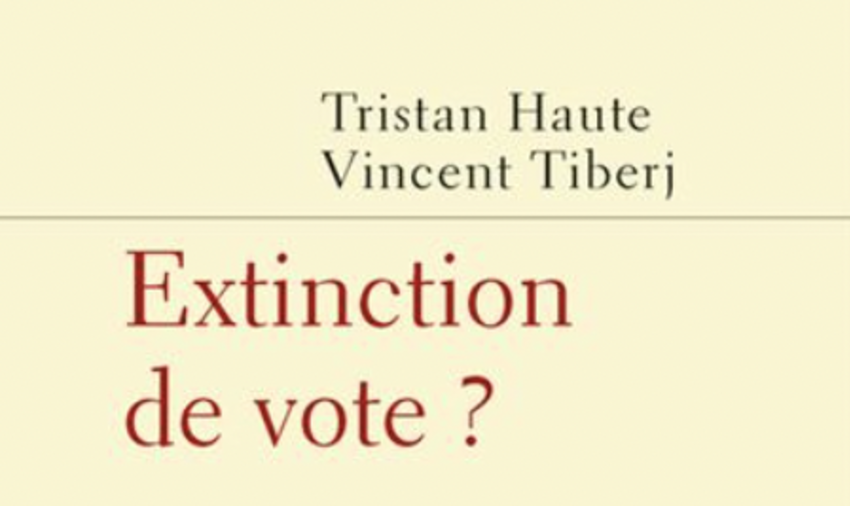
 Actualité Sciences Po
Actualité Sciences Po
Présentation de l'ouvrage Extinction de vote ? Tristan Haute, Vincent Tiberj (dir), Editions Bouquins avec la participation de deux contributeurs, Florence Faucher & Jeremie Moualek.
Pour assisyter à ce séminaire s'inscrire auprès de info.cevipof@sciencespo.fr
Séminaire "Leadership" #6

 Concept de Leadership @Shutterstock
Concept de Leadership @Shutterstock
Quels types de leaders se dégagent de la campagne présidentielle de 2022? Y a t il des candidats qui se singularisent dans la construction de leur Leadership ?
La vague 5 de l’enquête électorale française (ENEF 2022) montre que deux électorats semblent avoir trouvé leurs leader : celui d’Emmanuel Macron et celui d’Eric Zemmour.
Avec l'intervention de Philippe Guibert, Institut François Mitterrand
CEVIPOF HAS MOVED
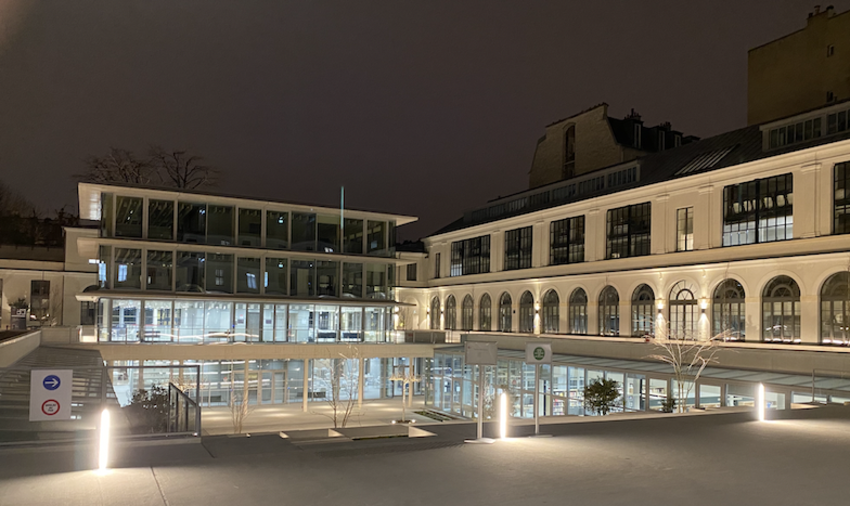
 1 Saint-Thomas un matin d'hiver 2022 CR @Marilyn Augé
1 Saint-Thomas un matin d'hiver 2022 CR @Marilyn Augé
Why women choose at-home abortion via teleconsultation in France:
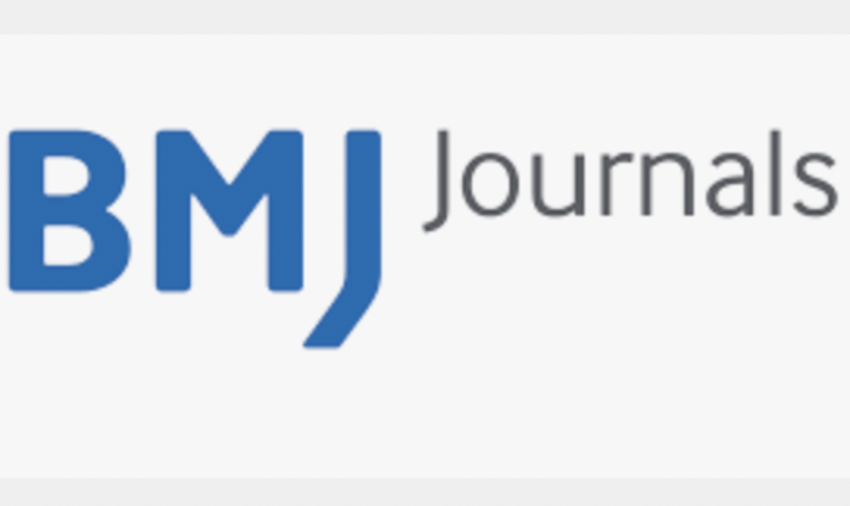
 BMJ Journal
BMJ Journal
Trust in scientists amidst the pandemic: Panel evidence from 12 countries
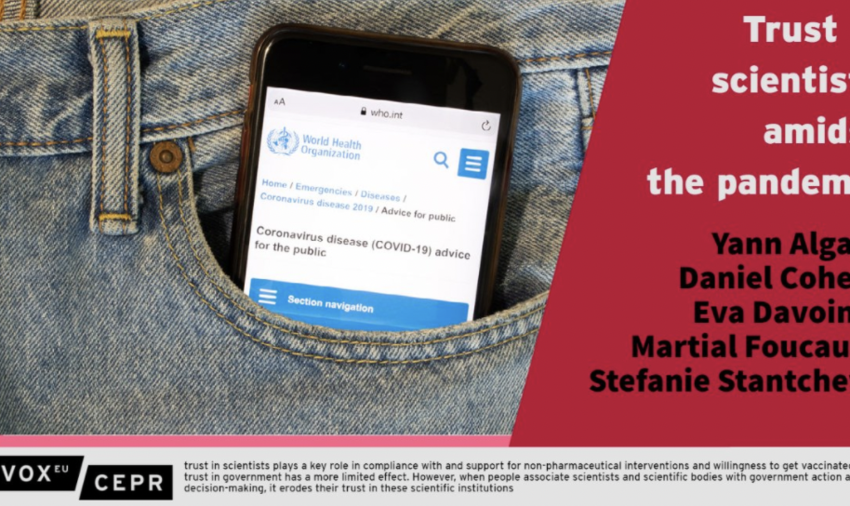
 Trust in Scientist
Trust in Scientist
Happy New Year 2022

 Actualité Sciences Po
Actualité Sciences Po














